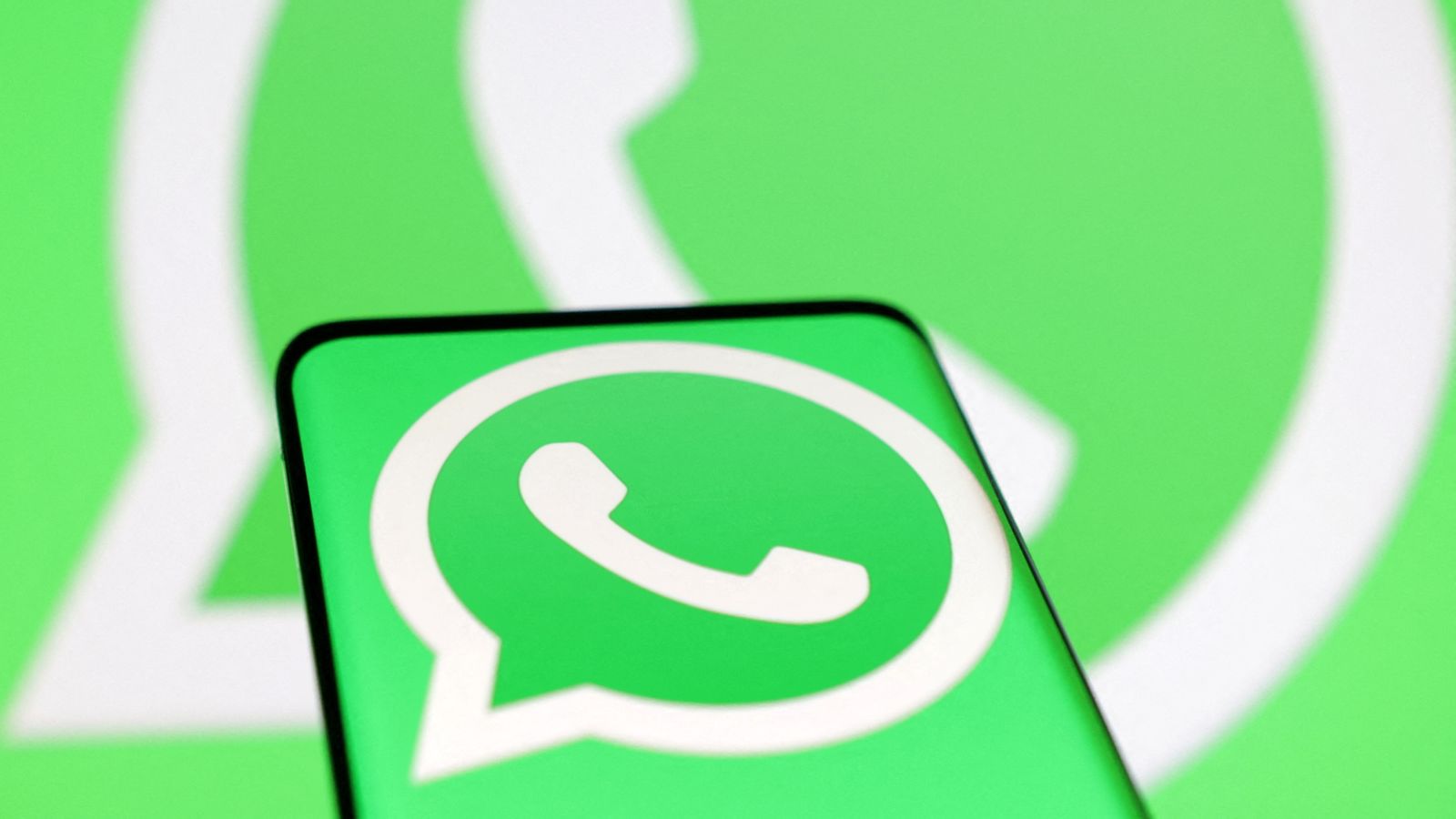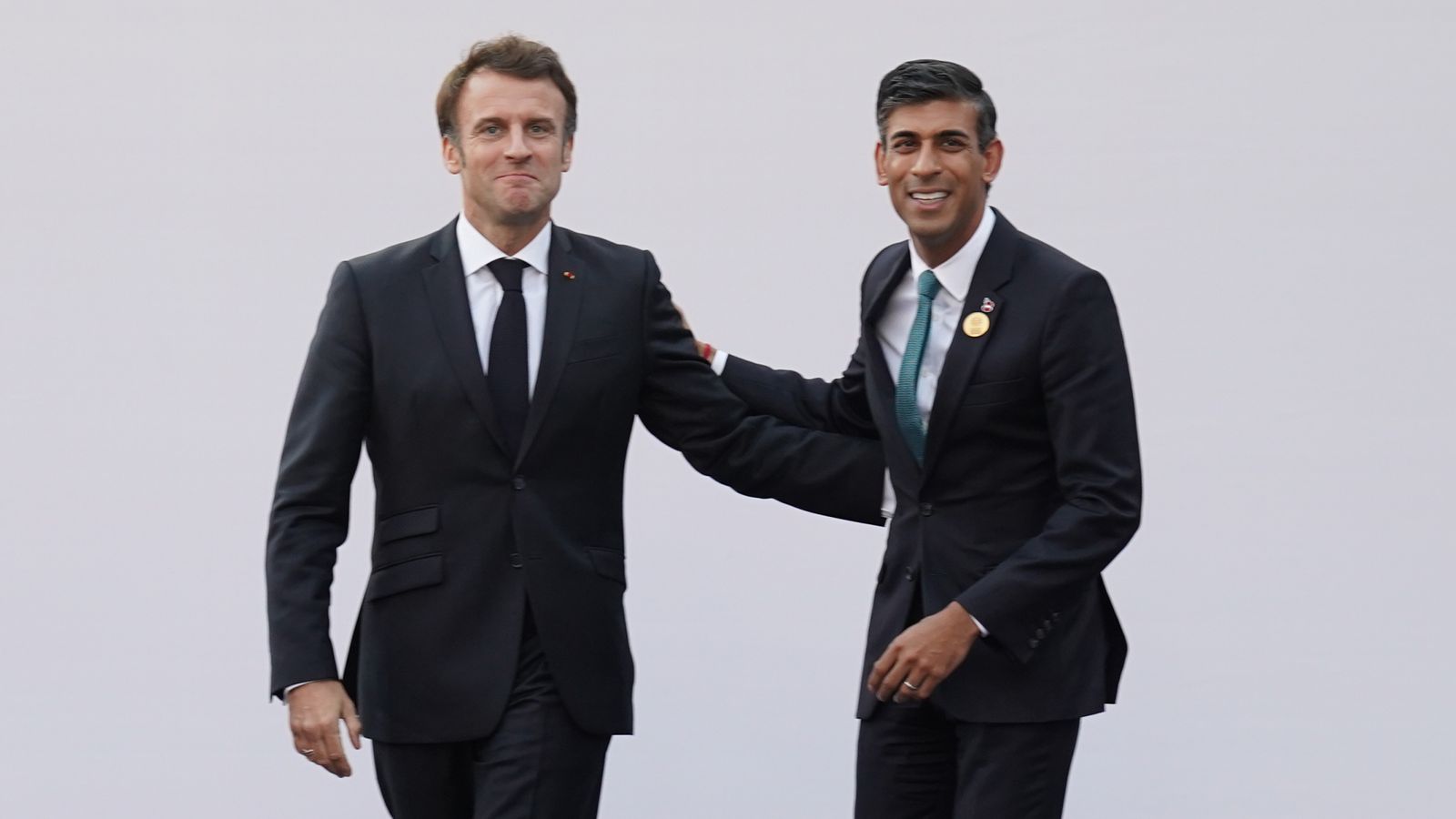WhatsApp is right not to back down in its opposition to UK government proposals that could allow encrypted messages to be scanned, online privacy campaigners have said.
Robin Wilton, director of internet trust for the Internet Society, told Sky News that any requirements in the upcoming Online Safety Bill that would weaken user privacy would be “a horrendous thing” for firms to implement.
It comes after the head of WhatsApp, the popular messaging platform owned by Meta, said he would sooner see British users stopped from using the service than allow the government to impinge on their privacy.
“We won’t lower the security of WhatsApp,” said Will Cathcart.
“We have never done that – and we have accepted being blocked in other parts of the world.”
WhatsApp and similar apps like Signal use end-to-end encryption so that nobody outside a chat can view any messages being sent – even the platform provider itself.
The Online Safety Bill, wide-ranging legislation aiming to regulate internet content to keep people safe, would give media regulator Ofcom the power to demand that such platforms identify and remove child abuse content.
Refusing to comply could see companies face huge fines.
The bill returned to parliament late last year after several delays, and has the support of several major charities, safety activists, and – surveys suggest – large numbers of British adults.
But tech companies have expressed concerns that the bill is too far-reaching and unclear about what they will be required to censor, while some MPs have said it could impact freedom of expression.
Read more:
Why the Online Safety Bill is so controversial
‘There is no silver bullet’ to solving online abuse
Please use Chrome browser for a more accessible video player
UK on ‘highly dodgy path’
Sky News previously revealed the UK government has never ordered Meta to provide authorities with ways to access encrypted WhatsApp messages, despite having the legal power to do so in secret.
Mr Wilton said the Online Safety Bill could instead require platforms to effectively “check” the messages before they become encrypted – like looking over your shoulder to read your letters rather than open them in the post.
This could be done by scanning for illegal material preemptively on a device itself, before a message is sent.
“It is a highly dodgy path for any Western democracy to be going down,” Mr Wilton added.
Big Brother Watch, a privacy group, warned the move would see the UK become a “communications black hole”.
WhatsApp rival Signal has also said it would stop operating in the UK if required to scan messages.
Conservative MP David Davis has proposed an amendment to the bill to remove powers to monitor people’s private encrypted messages.
Be the first to get Breaking News
Install the Sky News app for free
‘Tired false argument’
The government has insisted that the bill would not outlaw end-to-end encryption. It said it will retain privacy while protecting the safety of children online.
Richard Collard, associate head of child safety online policy at the NSPCC, described private messaging as the “frontline of online child sexual abuse”.
He said it was a “tired false argument” that children’s safety could only be achieved at the expense of adult privacy.











